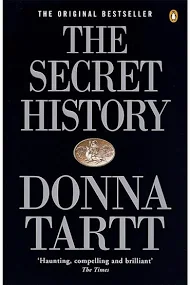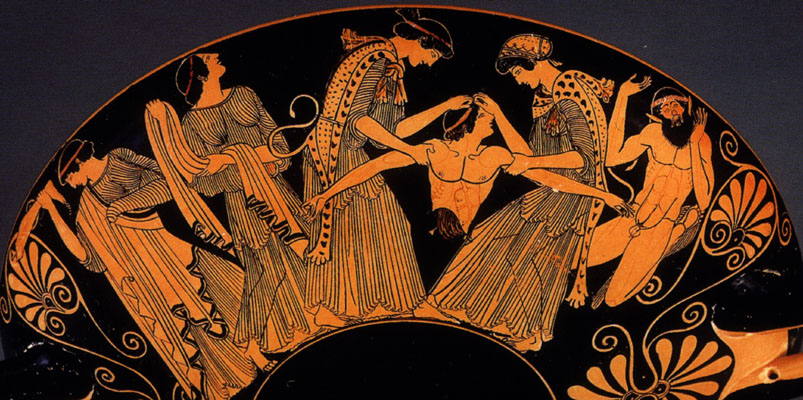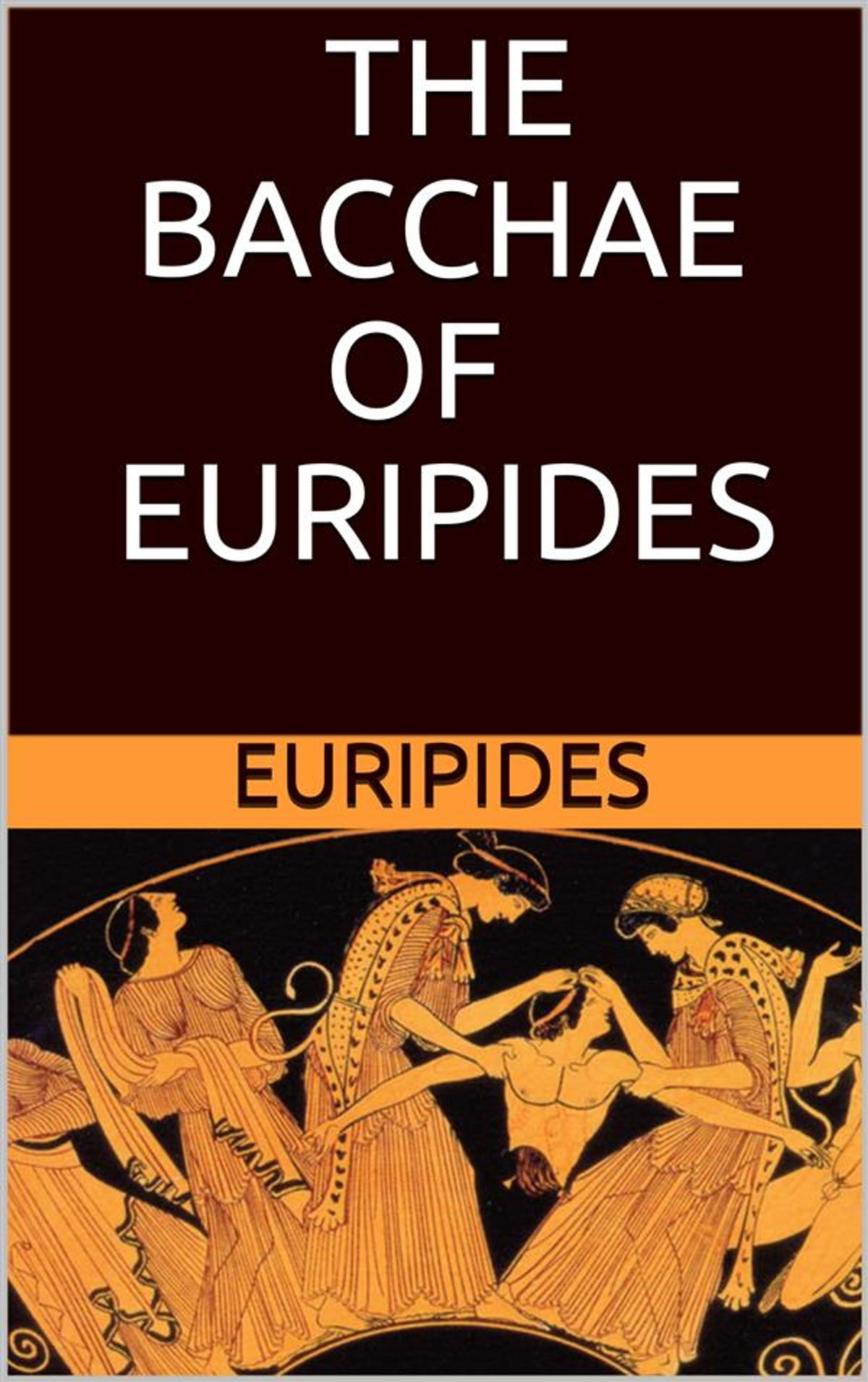 The snow in the mountains was melting and Bunny had been dead for several weeks before we came to understand the gravity of our situation. He’d been dead for ten days before they found him, you know. It was one of the biggest manhunts in Vermont history…
The snow in the mountains was melting and Bunny had been dead for several weeks before we came to understand the gravity of our situation. He’d been dead for ten days before they found him, you know. It was one of the biggest manhunts in Vermont history…
Isn’t this a great beginning? Hooked in, straight away. Who’s Bunny? What’s the deal with melting snow? Who are the ‘we’? For that matter, who is the ‘I’ who is so casually telling us about a death and a manhunt and the melting snow?
The Secret History by Donna Tartt was our most recent Book Group novel. It was long (at 629 pages of small print, very long) but most of us finished it, and some of us whipped through the pages despite the length. This includes me, and I’m one who really loves a short book. I read it when it first came out, though ‘devoured’ is probably a better word. I hadn’t read anything like it before; it was one of those rare beasts, a literary page-turner. I read with a little more attention this time, not quite so beguiled – and even a little picky – but not once did I struggle to keep going. I’d say it held up well.
The narrator is a young man called Richard Papen, yet another brilliant misfit way out of his league and trying to fit in. The book group could all refer back to the narrator in one of our previous books – the damaged Enderby – but Richard is a much more successful imposter. One of the group members recalled Patricia Highsmith’s Ripley. I thought of Gatsby.
Fleeing an unsatisfactory future in sunny California, Richard applies for a place at Hampden, a small New England university – and to his surprise, he’s accepted. He wants to register for the Greek (ancient, that is) class but the brilliant, charming and unconventional Classics professor, Julian Morrow, accepts only a select few acolytes and keeps apart from the rest of the language and literature department. Which intrigues Richard. As do Henry, Bunny, Charles and Camilla (twins) and Francis, Julian’s chosen ones. They’re all rich and well-connected. The elite. When finally he’s accepted into the class, he invents a new background (money, glamorous lifestyle, private schools) and despite his deepening friendship with the five, he never drops the deception.
I loved the way Tartt evokes young adult college life, with its mix of intense friendships, intellectual and philosophical and spiritual discovery allied with drugs and alcohol and freedom. Made me remember my art school days! Though thankfully we never killed anyone on one of our rampages though the inner suburbs. With Julian as their guide they attempt to immerse themselves in Greek language and philosophy and thought. It’s an ancient mindset where the rational was in an uneasy balance with the irrational, the inspired, the frenzied… and the mad.
There is – Tartt makes it clear from the first pages – a murder, but it’s not really so much a ‘who done it’ as a why done it and what comes after it’s done. The big themes and questions of life – morality, responsibility and guilt, truth and beauty, good and evil – swirl around in contrast to Richard’s everyday life. When he’s not with the group, he’s working, scoring drugs and information from his fellow Californian Judy, living in student digs. There are a few remarkable set-pieces. The freezing winter in the hippie’s attic is gruelling to read. I thought the languid days at Francis’ country house where Richard becomes increasingly infatuated with the group and in particular, Camilla evoked Brideshead Revisited. The closely observed, nightmarish trip to stay with Bunny’s hilariously hideous and tragic WASP family for his funeral stood out. It could almost have been part of another, different, non-campus novel – one without a murder in it, perhaps by Ann Patchett.
Our book group agreed that The Secret History could have done with an edit. One member thought the smallness of the Hampden College – at 500 students – was unrealistic. I felt that Bunny was too much of a lazy clod to learn ancient Greek. Another member pointed out that if they had only sensibly reported the death as an accident, they would all have been off the hook. But then there would have been no story.
My haul at the Friends of Castlemaine Library book sale on the weekend was mainly gardening books, but I threw in a battered and much pencilled student edition of Euripides The Bacchae. Good lord, it’s horrific!
As priestess leading the Dionysian rites, Agaue kills her own son, Pentheus, despite his pleas to her.
Agaue was foaming at the mouth; her rolling eyes
Were wild; she was not in her right mind, but possessed
By Bacchus, and she paid no heed to him, She grasped
His left arm between wrist and elbow, set her foot
Against his ribs, and tore his arm off by the shoulder.
It was no strength of hers that did it, but the god
Filled her, and made it easy. On the other side
Ino was at him, tearing at his flesh; and now
Autonoe joined them, and the whole maniacal horde.
A single and continuous yell arose – Pentheus
Shrieking as long as life was in him, the women
Howling in triumph. One of them carried off an arm,
Another a foot, the boot still laced on it. The ribs
Were stripped, clawed clean; and women’s hands, thick red with blood,
Were tossing, catching, like a plaything, Pentheus’ flesh.



I also remember gulping down The Secret History when it first came out and I’d only just stopped being a student myself, but I can’t remember any details of the story beyond the bare bones of the plot and the intense, gripping atmosphere. Might be time for a re-read, if you tell me it stands up! I also adored Brideshead and Gatsby, so that might explain part of the appeal.
The Bacchae sounds like a slasher film :/
I reread this recently (well, audiobooked) and loved it as much as I did when it first came out. Then I revisited her second book The Little Friend, which I’d never managed to get through the first time around, but this time (audiobook again, and Tartt narrating) I thought it was great – the young Harriet is v. Scout-ish and like a kid superhero facing off cracker hillbilly villains. I don’t know if you’re a podcasty person but I was also fascinated by The Secret History of Bennington College which tried v hard to reveal things about Donna Tartt and her bohemian milieu ! Also I can’t think about Euripides without remembering Gregory Corso riffing ‘you -rip-a-dese you- men-a-dese’ … hope you’re well, Susan!!!
I’ve got The Little Friend – bought it soon after it came out – but never got much further than the first few pages. Maybe I could try again? Audiobooks are best for me on long drives, so I’ll have to go on a road trip. And I’d be interested to hear Donna Tartt’s voice, too.
Yes, I’m well thanks Simmone. And I hope you are too.